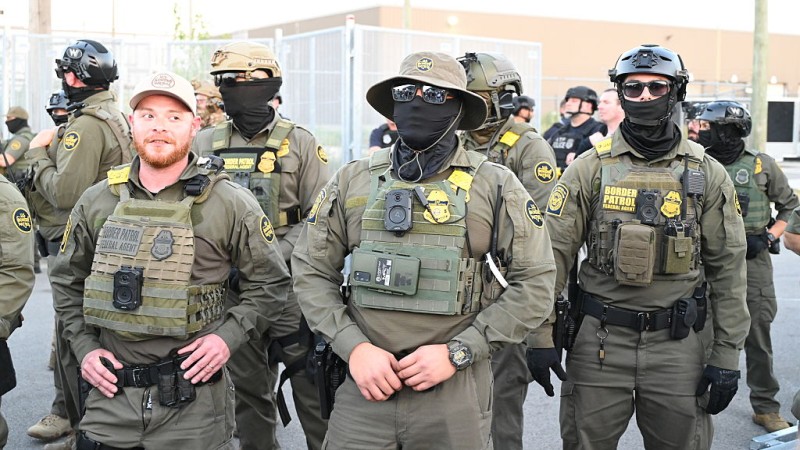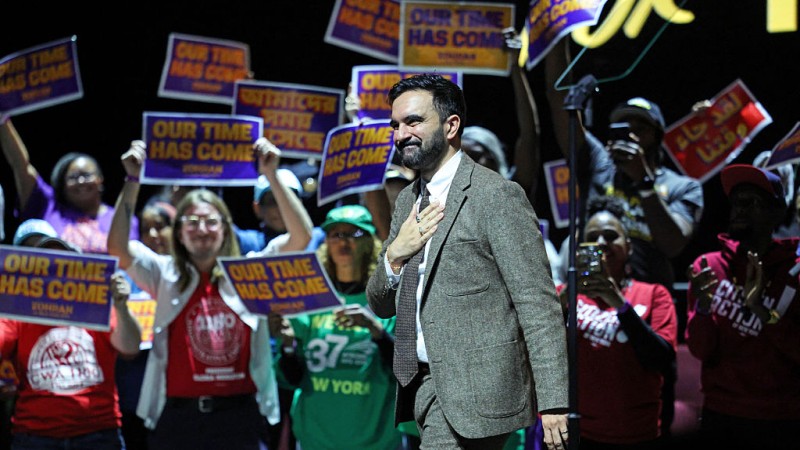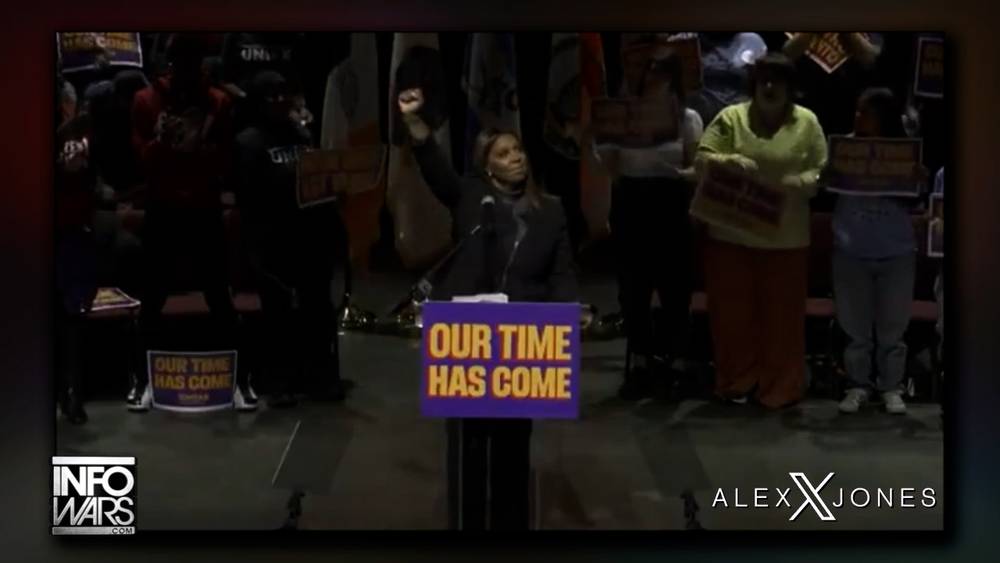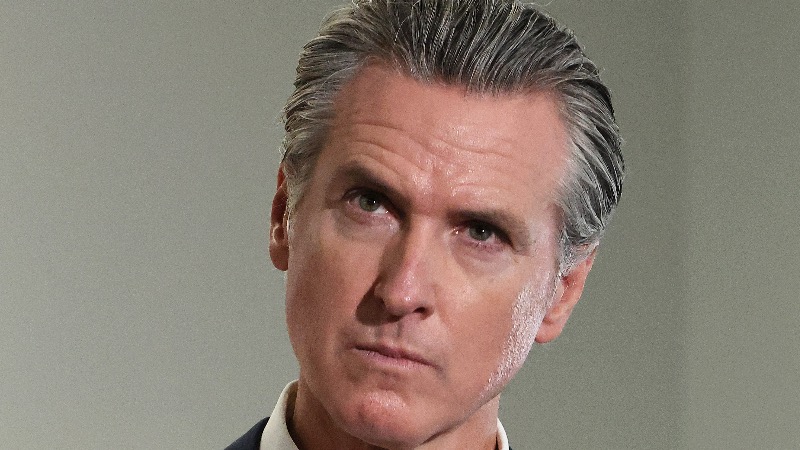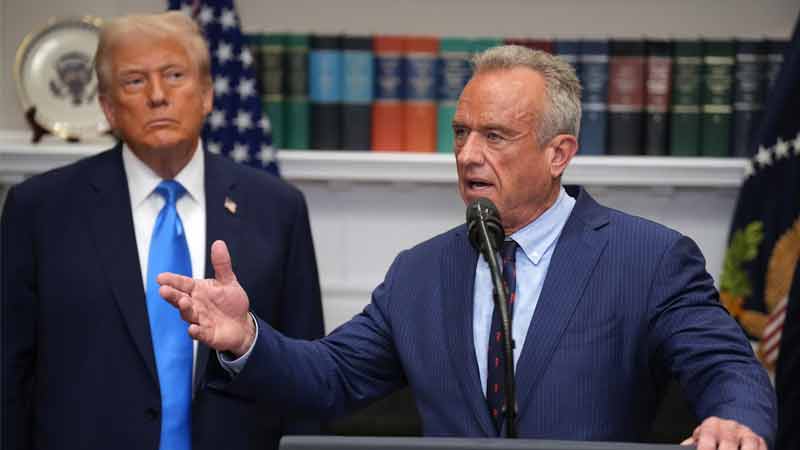 Image Credit: Andrew Harnik / Staff / Getty
Image Credit: Andrew Harnik / Staff / Getty Symptoms commonly associated with autism would be added to a federal vaccine injury compensation program under a proposal that would allow people with autism to file compensation claims, Politico reported Thursday.
If passed, the proposal by U.S. Health Secretary Robert F. Kennedy Jr. would expand the list of injuries recognized under the National Vaccine Injury Compensation Program (VICP) to include symptoms that “people with autism often experience,” Bloomberg reported.
Autism itself would not be added to VICP’s injury table, but adding symptoms commonly experienced by people with autism would create “an indirect opening … to seek funds,” Bloomberg reported, citing remarks made Thursday at a MAHA Institute event by Drew D. Downing, a vaccine injury lawyer and senior adviser to Kennedy.
“We have a team looking at it,” Downing said, in remarks cited by Bloomberg. “We have to figure out a way to capture these kids,” he said, referring to autistic children. “How do we capture them … do we broaden the definition of encephalopathic events? Do we broaden neurological injuries? How do we do that?”
Downing did not respond to The Defender’s request for comment by press time.
‘A form of economic justice’ for people with autism
Wayne Rohde, an expert in vaccine injury compensation and author of “The Vaccine Court: The Dark Truth of America’s Vaccine Injury Compensation Program” and “The Vaccine Court 2.0,” said the proposed approach would recognize specific injuries that are known to trigger autism.
“Autism is not a medical injury from vaccines. Encephalopathy, encephalitis and other medical conditions that lead to autism are injuries,” Rohde said.
According to Bloomberg, Kennedy has repeatedly criticized the VICP and the limited pathways it provides for people with certain injuries to file compensation claims.
“We need to identify the exposures that are causing this epidemic and compensate the families of the injured,” Kennedy wrote in an April post on X.
In a July interview with the late conservative activist Charlie Kirk, Kennedy said he is working to ensure that those injured can “get compensation … get it very quickly, and they get it without the kind of adversarial impediments that have now been erected over the past 40 years.”
Research scientist and author James Lyons-Weiler, Ph.D., called the proposed changes to VICP “an excellent move” by Kennedy.
“This shift towards symptom-based compensation will almost certainly provide redress and a form of economic justice to families whose lives are forever changed by neurodevelopmental disorders induced by vaccines,” he said.
RFK Jr.’s plans would ‘radically transform’ VICP
According to Bloomberg, if the policy changes are finalized, they would “radically transform a federal program that was initially formed after a wave of lawsuits against vaccine makers in the 1980s forced shot makers to take their products off the market and led to shortages.”
The VICP covers injuries from vaccines routinely administered to children and pregnant women. It was established under the National Childhood Vaccine Injury Act of 1986, often simply referred to as the “Vaccine Act.”
The program shields vaccine manufacturers from liability claims. A $0.75 excise tax levied on vaccines included in the Centers for Disease Control and Prevention’s childhood immunization schedule funds VICP payouts for injury claims connected to those vaccines.
As of June 1, the VICP had awarded $5.4 billion in compensation claims since 1988, the year the program took effect. The program has approved nearly half of the claims filed during this period.
The VICP is separate from the Countermeasures Injury Compensation Program (CICP), established under the Public Readiness and Emergency Preparedness Act of 2005. The CICP covers vaccines and other countermeasures, including COVID-19 shots, administered during a public health emergency.
The VICP has been the target of criticism. Rohde said VICP’s vaccine injury table “has historically been used to restrict known vaccine injuries” rather than to recognize new risks.
“The VICP and the U.S. Department of Health and Human Services [HHS] have been playing games with compensating children and families for neurological and neurodevelopmental injuries, not all of which fall into an autism diagnosis,” Lyons-Weiler said.
‘Era of vaccine risk, injury and death denialism is over’
Bloomberg reported that the proposed changes could “overwhelm the VICP program and lead to a backlog of cases,” throwing it “into disarray” — an outcome that “could further erode trust in vaccines.”
But according to Lyons-Weiler, VICP “is already overwhelmed,” as it faces a backlog of approximately 6,000 cases.
Rohde said this backlog “needs to be addressed.”
“Many of these petitions result in claims being litigated 5-7 years later. Congress can simply alter statutes to allow additional special masters, currently capped at eight, to 10 or 12. The Health Resources & Services Administration, which administers the program for HHS, needs to add more staff to perform medical reviews to help expedite the petition process,” Rohde said.
Lyons-Weiler suggested that by adding new conditions and symptoms to VICP’s injury table, those cases would “no longer have to go to litigation.”
“I think we can expect a large number of conditions for which the evidence is strong … will be put on the docket for review, for rapid addition to the table,” Lyons-Weiler said.
Rohde suggested that a modest increase in the excise tax levied on routine childhood vaccines could help fund an expanded VICP.
“Fears that the Vaccine Injury Trust Fund would not be able to support increased payouts is another ridiculous canard. The current levy on a single antigen vaccine is $0.75. Congress could increase this to $1 or more — and Big Pharma would graciously pay any increase to keep their immunity to lawsuits,” he said.
News of the proposed changes to the VICP came just days after Monday’s announcement by Kennedy, President Donald Trump and several public health officials that HHS will study all possible causes of autism, including vaccines.
“Whether they like it or not, all vaccine manufacturers and all members of public health institutions must hear the message loud and clear from HHS — the era of vaccine risk, injury and death denialism is over,” he said.
